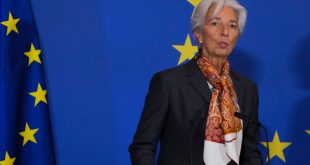
Are Geopolitical Wins Enough to Boost Investor Confidence on Wall Street?
Wall Street kicked off the trading day with a mixed performance, as investors braced for a flurry of retail earnings reports and kept a close watch on developments in the ongoing Ukraine-Russia conflict. The major indices showed little decisive movement, reflecting a blend of caution and optimism in the face of economic data and international diplomacy.
The benchmark S&P 500 held steady with no significant change, while the Dow Jones Industrial Average edged up by 0.2%. In contrast, the Nasdaq Composite dipped slightly by 0.1%. Bond yields also painted a picture of stability mixed with minor shifts: the 10-year Treasury yield slipped by 2 basis points to 4.32%, and the 2-year yield remained flat at 3.76%. These movements came as traders digested recent corporate results and macroeconomic indicators.
In corporate news, shares of a major home improvement retailer climbed 1.3% in premarket trading after reporting a 4.8% year-over-year revenue increase to $45.3 billion for its second quarter. However, comparable sales fell short of expectations, tempering some enthusiasm. On the housing front, July’s housing starts exceeded forecasts, signaling resilience in construction activity, though building permits unexpectedly declined, hinting at potential future slowdowns.
The previous session had seen the major averages close with subdued gains, as market participants pivoted their attention toward upcoming retail sector reports and a highly anticipated speech by the Federal Reserve Chair at an economic symposium later in the week. This shift underscores the market’s sensitivity to both corporate performance and monetary policy signals.
Geopolitically, attention remained riveted on efforts to resolve the Ukraine-Russia war. Ukraine has pledged to purchase a substantial $90 billion package of U.S. weapons as part of security discussions. Recent high-level meetings involving U.S. leadership with Ukrainian and Russian counterparts have aimed at brokering peace, including proposals for direct talks between the conflicting parties. While Ukrainian officials expressed readiness for dialogue, Russian responses have been non-committal so far. European leaders have voiced encouragement over the constructive tone of these interactions, suggesting a potential path forward amid longstanding tensions.
Traders are also gearing up for the annual economic symposium, where the Federal Reserve’s remarks could provide clues on interest rate trajectories—whether cuts are imminent or if a more measured approach will prevail. Upcoming Fed minutes and speeches from key officials on fostering innovation in banking add to the week’s policy-focused agenda. Broader market concerns persist, including the ripple effects of trade policies, inflation pressures, and global uncertainties.
Investor sentiment, as reflected in online discussions, varies widely. Some express support for diplomatic initiatives in the conflict, citing positive polling on U.S. leadership’s handling. Others urge caution, pointing to historical precedents and questioning long-term commitments from involved parties. Debates also touch on peace proposals, such as freezing borders at current lines, though these ideas draw mixed reactions amid ongoing territorial disputes. Overall, the markets continue to navigate these dynamics, driven by a mix of economic fundamentals and external events.
 Noor Trends News, Technical Analysis, Educational Tools and Recommendations
Noor Trends News, Technical Analysis, Educational Tools and Recommendations




